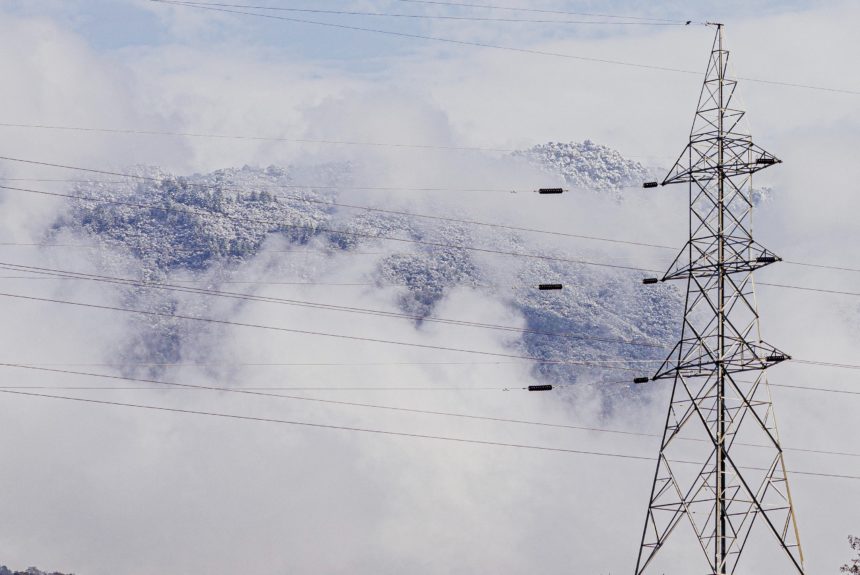When bad weather knocks out power to your home, you don’t call a politician to solve the problem. But if some activists have their way, Mainers might have to do just that the next time the lights go out.
On November 7, voters in Maine considered Question 3, which proposed authorizing the state to buy out Central Maine Power (CMP) and Versant Power to create a state-owned utility provider called Pine Tree Power. Had the measure passed, this state-owned utility would have been run by a board of elected officials who would have been in charge of expanding broadband coverage, providing affordable energy, and advancing electrification in Maine. Thankfully, Mainers rejected the measure 71%-29%.
>>>READ: The Coming Energy Expansion and What it Means for the Climate
Although CMP and Versant have consistently ranked at or near the bottom nationally in customer satisfaction, the costs of creating a state-run utility — and the politicization of utility services — would spell even worse service for state residents.
Buying out CMP and Versant would have made the state of Maine responsible for maintaining and upgrading thousands of miles of utility lines. Buying out both companies was projected to cost $13.5 billion — that’s more than Maine’s entire budget for the next two years. Had voters approved Pine Tree Power, the nonprofit would have been immediately buried in debt which would inevitably be passed on to ratepayers. As long as that debt remained unpaid, Mainers could expect to pay higher rates.
Adding to this massive amount of spending, the state of Maine would have also been on the hook for every hurricane, nor’easter, or snowstorm that disrupted power. Hurricane Lee resulted in 11% of Mainers being cut off from electricity. Without the almost $90 million in property taxes that CMP and Versant pay, Maine’s future budgets would have been at the mercy of extreme weather events.
In times of crisis, Mainers need their power restored quickly. Yet, the board of Pine Tree Power would be run by a majority of politicians, with seven elected officials outnumbering the six appointed issue-area experts on the Governing Board. These same elected officials would also be charged with appointing the issue-area experts, without having to consult with the state legislature or the Governor. With terms of six years, longer than any other elected official in Maine, these positions would become another political battlefield.
Advocates for Pine Tree Power have already emphasized that this state-owned utility would allow Maine to fulfill its climate commitments of reducing emissions by 80% by 2050. Nebraska, the only other state where the government owns and manages the electric grid, generated 49% of its electricity using coal this year. Candidates for the board of directors of Nebraska’s state-owned utility took over $175,000 from a plethora of energy companies during the last round of elections. Creating Pine Tree Power would invite similar levels of out-of-state spending on Maine’s state energy board.
Pine Tree Power advocates have said that rising rates and the threat of climate change necessitate a state takeover of electricity transmission and distribution. These are certainly problems that need to be addressed, but the environmentalists behind the push for Pine Tree Power have no solution. In fact, they have actively fought against progress, blocking clean energy projects like the $950 million New England Clean Energy Corridor (NECEC) and forcing the Maine Supreme Court to intervene to allow it to be built, raising the cost of the corridor to $1 billion.
In addition, environmental activists objected to the 54 miles of new transmission lines, despite the fact that the electricity transported by the corridor would be generated using hydropower and help decrease Maine’s emissions. In 2021, environmentalists scuttled a $90 million pipeline that caused the Dragon Cement Plant in Thomaston to close, 65 workers to lose their jobs, and caused Thomaston to lose its largest tax base contributor.
The same activists that have vowed to continue to push for government involvement in energy transmission — despite the resounding defeat of Question 3 in Maine — are themselves responsible for squeezing the supply of energy, driving rates higher.
Decreasing market competition in Maine, as Question 3 would have done, is the wrong way to address problems of reliability and pricing. Competitive electricity markets have been shown to deliver lower costs for consumers and cleaner power to the grid. Competitive power markets also protect consumers from bearing the investment risk of new and expensive power plant projects. Bringing in more energy providers, rather than stifling competition with a state-run Pine Tree Power, is the best pathway forward for Maine’s power grid and ratepayers.
>>>READ: Competitive Electricity Markets Deliver Economic, Environmental Benefits
Killing multimillion dollar infrastructure projects robs the state of tax revenue needed to maintain public infrastructure. Statewide, 44% of Maine roads are in poor condition and have the sixth-highest share of bridges that are structurally deficient in the nation. The state of Maine has failed to maintain roads and bridges, yet activists would trust the state to keep the lights on.
Until we have more energy and tax revenue, Mainers will continue to pay higher rates for power regardless of who controls the utilities. Question 3 was rightly rejected, but activists have vowed to continue to push for a state takeover of utilities. Maine’s residential electricity rates are already 59% higher than the national average. They will only rise more if Maine cannot build pipelines, transmission lines, and power stations.
Roy Mathews is a Writer for Young Voices. He graduated from Bates College in Lewiston, ME and his work has appeared in The Wall Street Journal, Law & Liberty, and Boston Herald.
The views and opinions expressed are those of the author’s and do not necessarily reflect the official policy or position of C3.
